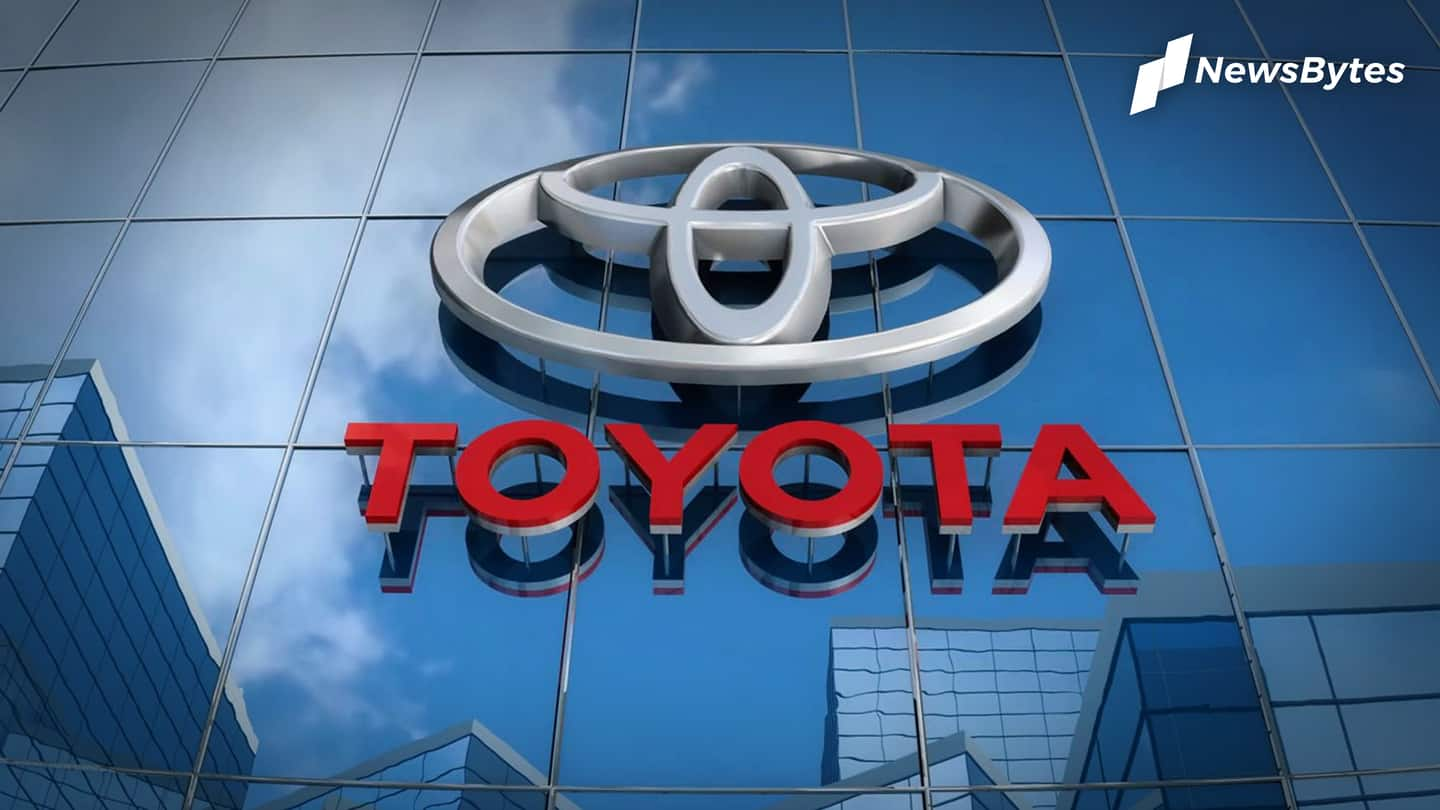
Blaming "we don't want you" taxes, Toyota halts India expansion
What's the story
Japanese multinational automotive manufacturer Toyota has decided to not expand its operations in India, courtesy high taxes, a report in Bloomberg said on Tuesday.
This serves a setback to Prime Minister Narendra Modi's regime, which intends to lure foreign companies to India.
However, the concerns of automobile manufacturers indicate the government isn't keen on letting go of red tapes.
Here are more details.
Concerns
Toyota came, invested, but suffered due to high taxes
Shekar Viswanathan, the vice-chairman of Toyota's local unit, Toyota Kirloskar Motor, said after the company arrived in India and invested in factories, it received unwelcoming signals from the government.
"The message we are getting is that we don't want you," he said in an interview.
He underlined that Toyota won't be exiting India, but in the absence of reforms, won't be scaling up either.
Taxes
How much taxes does India levy on automobiles? A lot!
To note, cars, two-wheelers, and sports utility vehicles attract anywhere between 1-22% of taxes in India. It isn't uniform and depends on the type, length, and engine size.
For example, a four-meter long SUV, having an engine capacity 1,500cc, is taxed a whopping 50%.
Viswanathan said the taxes make cars unaffordable to most, and as a result, factories stay idle and employment isn't generated.
Consequences
High taxes directly affect foreign investment, explained Viswanathan
Despite India being the world's fourth-biggest car market, international carmakers find it difficult to gain the government's trust and acceptance.
Viswanathan explained that the taxes dissuade foreign investment, prove disastrous for automakers' margins, as well as "make the cost of launching new products prohibitive."
"You'd think the auto sector is making drugs or liquor," he quipped.
Toyota
Toyota's market share fell, it isn't utilizing its plant entirely
Notably, Toyota, one of the most celebrated carmakers, started operations in India in 1997.
Even after more than two decades, the company failed to improve its market share. From 5% in 2019, the share shrunk to 2.6% in August. Toyota also tied up with Suzuki Motor Corp. to sell the latter's compact cars.
Worryingly, the company utilizes merely 20% capacity of its second plant.
Looking back
Before Toyota, Ford and General Motors also quit India
Unfortunately, Toyota isn't the only carmaker to have taken this route. In 2017, General Motors decided to wind down operations in India after struggling for over two decades.
Last year, Ford Motor Co. decided to move its assets and joined hands with indigenous brand Mahindra & Mahindra, citing similar reasons.
After years of toiling, Ford also failed to log a respectable market share.
Harley-Davidson
Harley-Davidson might also leave India due to poor sales
Last month, reports said Harley-Davidson, the iconic bike from the United States, will water down its assembly operations in India after recording poor sales.
In the previous financial year, it sold less than 2,500 units.
It was also reported that as a part of its restructuring plan, Harley-Davidson eliminated 700 positions as well as replaced its chief financial officer.
EVs
EVs will also suffer once they pick pace, claimed Viswanathan
With bigger carmakers breaking ranks with India, speculations suggest the market will be opened for EVs. To push for EVs, the Centre slashed GST on them from 12% to 5%.
However, Viswanathan believes that EVs will also suffer when sales soar.
"Market India always has to precede Factory India, and this is something the politicians and bureaucrats don't understand," he opined.
Suggestions
"Generate demand before asking companies to set shop"
Viswanathan added that India needs to generate demand "before asking companies to set up shop." He also said that just when a product starts doing well, it is inundated with high taxes.
Toyota's decision comes when India's automobile industry is witnessing a historic slump, with some experts saying that it would take four years for sales to return to pre-slowdown levels.